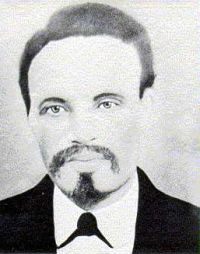 Bested by Confederate Gen. Robert E. Lee‘s Army of Northern Virginia, Union Gen. Joseph Hooker orders his Army of the Potomac to retreat across the Rappahannock River. The withdrawal continues until the morrow, but the Battle of Chancellorsville is effectively over today.
Bested by Confederate Gen. Robert E. Lee‘s Army of Northern Virginia, Union Gen. Joseph Hooker orders his Army of the Potomac to retreat across the Rappahannock River. The withdrawal continues until the morrow, but the Battle of Chancellorsville is effectively over today.
Hooker’s retreat takes Lee by surprise, as he had planned another assault upon the foe, only to discover that they have vanished. Thus the Confederates score a major battlefield victory this first week of May, early in the third year of the war.
Lee’s victory in the war is a blow to emancipation, although it will prove unable to reverse the dying throes of slavery. While the Confederates celebrate, far to the north and west a group of 75 “contrabands” (freed slaves) from Missouri arrives in St. Paul, Minnesota today. A fraction of the total number of slaves who today escape from bondage throughout the Confederacy, this group has been led to freedom by Robert Thomas Hickman, born a slave in Missouri in 1831 and now a Baptist preacher. Soon, the freedmen find jobs as teamsters and laborers.
As the self-proclaimed “Pilgrims” settle into new lives in Minnesota, Rev. Hickman seeks a place of worship for the newcomers. Initially, the freedpeople meet in individual homes, then in a rented downtown concert hall beginning in November. In January 1864, the First Baptist Church of St. Paul offers support for the fledgling African American congregation by granting it mission status. This arrangement remains until after the war, when on November 15, 1866 Rev. Hickman and his congregation officially form the Pilgrim Baptist Church of St. Paul. A baptismal service on the shores of the Mississippi River celebrates the church’s formation.
Source: Battle of Chancellorsville (link); Robert T. Hickman, The Black Past: Remembered and Reclaimed (link)


